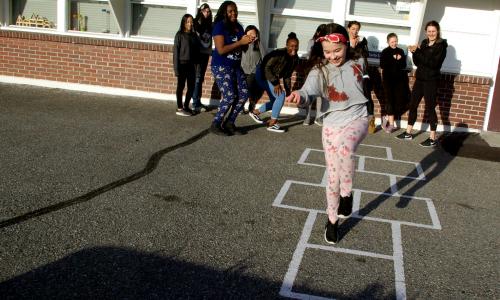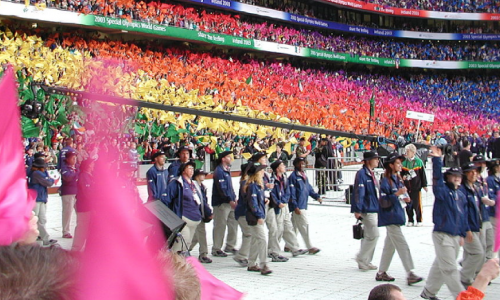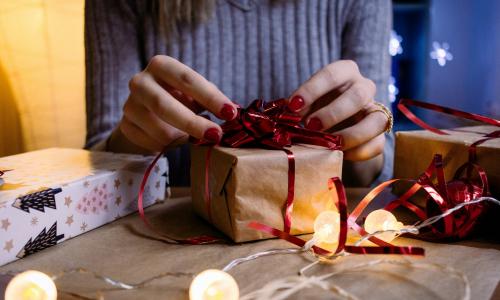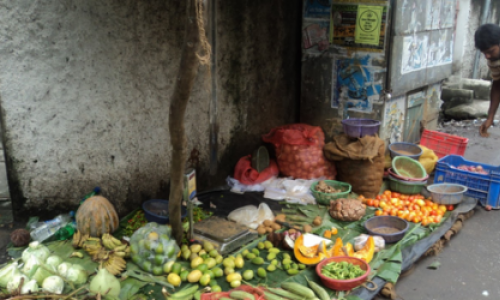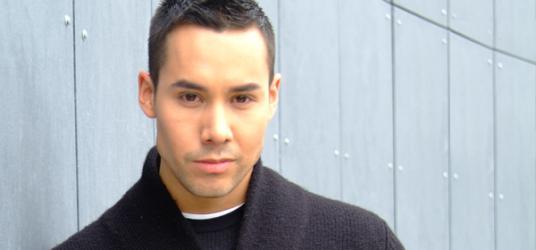
Justin Rain is a professionally trained actor, multimedia artist, and public speaker, of Plains Cree descent. An award winner for ‘Best Actor’ at the 2010 Winnipeg Aboriginal Film Festival, Justin’s acting credits include “Two Indians Talking,” winner of the Most Popular Canadian Film Award at the VIFF in 2010; and the TV series “The Guard.” He also plays a Quileute warrior in “Twighlight: Eclipse;” and stars in 8 episodes of “Blackstone,” a visceral drama about life on the fictional Blackstone Indian reserve. Justin is currently working on a presentation for youth that he plans on touring Canada with to spread his inspirational story, drawing inspiration from footage of the work he’s done in his film career to date, as well as showcasing work from other artists such as the short film called “Fear/Love.”
“Whenever there is an opportunity to share my experience with people, it usually doesn’t take much for me to jump on board,” states Justin Rain when I ask him about his experiences at a recent event co-hosted by Career Services and the Indigenous Student Centre, “Indigenous Peoples’ Career Stories.”
But what is it that makes Justin’s experience worth hearing? Perhaps it’s the fact that he’s a young, award winning First Nations actor. Or it could be his rise above the struggles many indigenous youth experience in drugs, violence, and alcohol abuse. If that’s not it, maybe it’s the work he’s doing speaking to high school students about his journey, eventually across Canada. Of course, I’m sure the fact that he played a werewolf in Twilight: Eclipse doesn’t hurt, either.
If you missed the “Indigenous Peoples’ Career Stories” event on March 3rd, Justin was one of 5 First Nations panelists telling their stories to an eager, bannock-filled crowd on what turned out to be a snowy evening up here at SFU’s Burnaby campus. But however cold it was outside, an atmosphere of intimate warmth was shared by those in attendance, thanks to SFU’s welcoming First Nations community and the intriguing and inspiring stories shared by Justin and his co-panelists.
It became clear at the event that the First Nations’ oral tradition of transmitting knowledge still thrives today – something Justin confirms when I ask him about his willingness to volunteer his time at the event, saying that he “always enjoyed listening to role models’ personal struggles and the journeys they’ve walked… maybe I could inspire others through sharing my stories with them.”
In Justin’s case, that story involves a love for art in all its forms. “Art did save my life,” he admits. I asked Justin how he discovered this passion and if he had any suggestions for helping others to find theirs.
I was upgrading to attend BCIT to take an architecture program when I started to meet other… aspiring actors. I started auditing a few acting classes, one thing led to another and soon I became more and more involved until I fell in love with the Arts. When I first realized I was going to be an actor I knew that I had to put everything I had into it.
It’s a message I’m familiar with – the unexpected often leads to surprising and rewarding career paths. But what if Justin’s passion didn’t translate into a successful career? Was there a backup plan? Wouldn’t it be difficult to become established as a performing artist?
There was going to be no plan B’s, so to speak. Plan B’s to me are like ‘fail’ plans. People put them there to fall back on, and inevitably, eventually…they do. When I was studying to be an architect I was genuinely excited but I just wasn’t getting the full satisfaction from it that I was through the arts. I think that if you truly know what you love doing, you’ll be willing to endure even the toughest of times to keep what belongs to your heart.
For Justin, tough times came in the shape of battling through violence, gangs, drugs, and alcohol abuse before coming to his own realization.
I did get caught up with the wrong crowds growing up, started using drugs, drinking lots…. I wasn’t expressing myself through positive portals. When I started realizing I was killing my soul and essentially myself, it was because I wasn’t expressing my pain and inner dramas through [an] art medium. The more a person neglects their feelings as an artist, the more lost they become. Some people don’t know how to talk about how they are feeling – this is something I’m still working on. I think that we are all born creative beings, and when we’re not creating or expressing positively… sometimes we can fall into a destructive state of mind, then soon follows a dysfunctional lifestyle. Relationships, family, work, all these and more become affected when we’re not ‘venting’ through a positive medium. So it’s important that the youth around us start to hear this. And the more they hear it, the higher the possibility of them beginning to believe it.
As a trained counsellor, the idea of expressing emotions in positive or constructive directions is another one of those messages that I’m familiar with, and I’m really glad that Justin brought it up. But without a lot of hard work, it’s unlikely Justin would have the success he does today. When I asked about what he’s done to get to where he is, he gave a glimpse of a challenging but also rewarding process:
I work hard every day pressing myself forward, closer to my goals. When the other guy’s talking, I’m working. He’s sleeping, I’m working. [I am] always working and knowing [to] expect a certain amount of pain to get where [I] want to be. I’m not here to give up, even in the hardest times.
One of the messages that I heard clearly at the Indigenous Career Stories event, from Justin and all other panelists, was that despite the persistent barriers facing indigenous people and particularly indigenous youth, there is an incredible resilience and cultural pride within many First Nations communities that many, like Justin, are able to tap into for strength. When I asked him about barriers he faced as a young First Nations professional, Justin emphasized this and his own hard-won confidence and self-esteem.
We as a people are just as capable, if not more, than any other group of people on the earth. We come from a strong place spiritually and morally. I think we should be thinking outside demographics – sharing our messages as artists internationally and without racial discrimination. We are people put here to make a difference for everyone, and if we’re not making a difference, or other peoples’ lives better, then what’s the point? I’m proud of who I am as a person. I wasn’t always so high in esteem with this. [Additionally], I think [barriers are] something that not only we as indigenous people face, but everyone. I’m in a place where I want to achieve just as much as the other guy, regardless of race. [As First Nations people], I think we should start thinking and striving individually, and not racially. When we do this you’ll see the horizon is much broader and the opportunities are limitless.
I can safely say that the in the process of writing this article I have been both inspired and educated by Justin’s story, as well as those of the other panelists at the event. Perhaps it’s time I started embracing and better nurturing my own inner artist!
I wanted to close with the question – does Justin have any advice for students out there struggling to find and establish themselves in their burgeoning careers?
Learn to love yourself, and in doing this your confidence will soon follow afterward. Learn from your mistakes; pick yourself up and more forward.
If that’s not good advice, I don’t know what is.
Beyond the Blog
-
You can see Justin’s profile on IMDB here.










